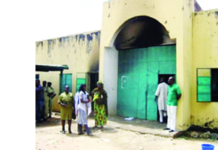External reserves nosedive 3.6% despite oil price rises
By Jeph Ajobaju, Chief Copy Editor
External reserves dipped 3.6 per cent to $39.024 billion in August 2022, down on $40.520 billion in the fourth quarter ended December 2021 (Q4 2021).
Pressure on foreign exchange (forex or FX) reserves has forced them to shed $1.496 billion year-to-date (YTD) despite the surge in crude oil prices.
Interventions in the forex market by the Central Bank of Nigeria (CBN) notwithstanding, the economy is starved of forex as traders continue to complain about restricted forex liquidity, causing the naira to depreciate more.
CBN policies and programmes encourage inflows but inability to attract foreign currencies through export value, diaspora remittances, and investments have resulted in severe FX shortage, encouraging arbitrage in the parallel market.
Decline in foreign reserves comes amid more than $100 crude oil average price in August, against the benchmark of $62 per barrel (pb) set by the government for the N17.12 trillion 2022 budget.
______________________________________________________
Related articles:
Diaspora remittances grow to $5.16b
Diaspora remittance spurs external reserves to $45m
CBN forex scheme lifts external reserves by $620m
_________________________________________________________________
Forex reliance on oil export
Nigeria’s foreign reserves rely mostly on income from crude oil export. However, despite the rise in oil prices, Nigeria’s capacity to increase oil revenue is constrained by decreasing production, per Nairametrics.
Exchange rate between the naira and the US dollar has declined from N565/$1 to N700/$1, a N135 differential YTD. Official exchange rate has maintained stability to trade around N430/$.
Official exchange rate stability comes at a cost to external reserves as the CBN sells foreign exchange in the official window from its external reserves. The decline is linked to CBN intervention in the official FX market to limit exchange rate volatility.
Thousands of forex applicants are facing harrowing experiences as they get their PTA in two or three tranches depending on what is available in the bank’s vault.
The CBN has also released $265 million to save the aviation sector, with a portion of it going to pay the blocked funds foreign airlines. However, if forex pressures persist the CBN would have to sell more forex from external reserves.
The CBN said forex inflows through the RT200 FX Programme surged in Q1 and Q2 2022, reaching around US$600 million in June.
But the rise in forex inflows via the RT200 FX is not adequate to alleviate the forex crises, and the ability of the CBN to stabilide the naira will be hampered if the pressure continues, since foreign reserves are being depleted.













